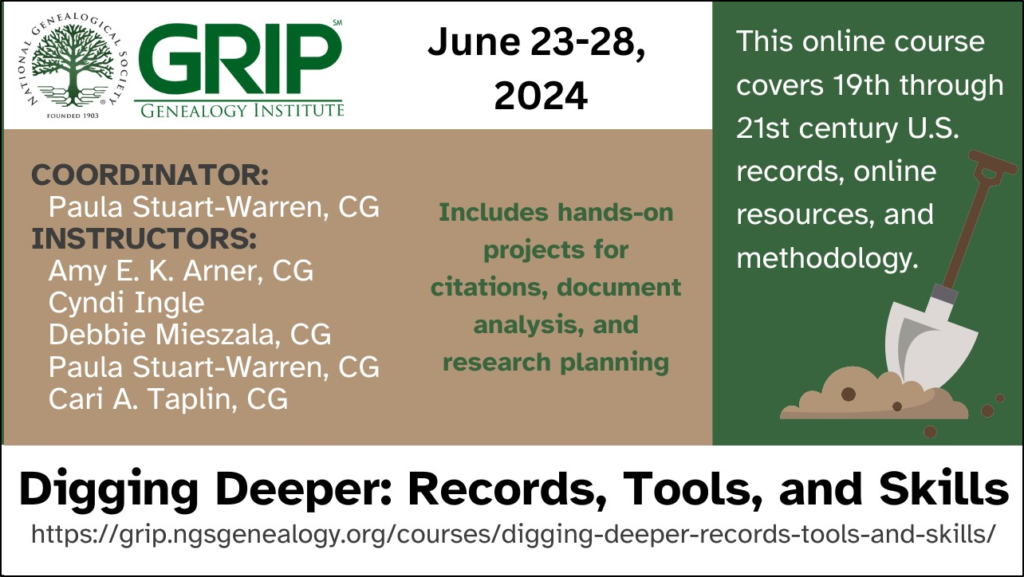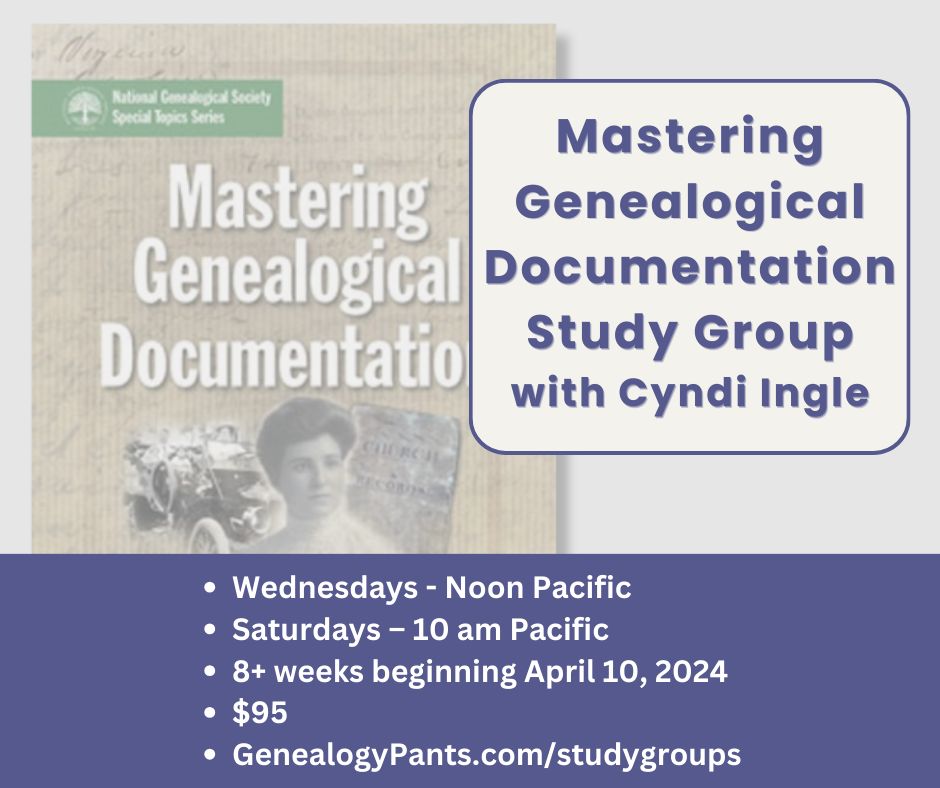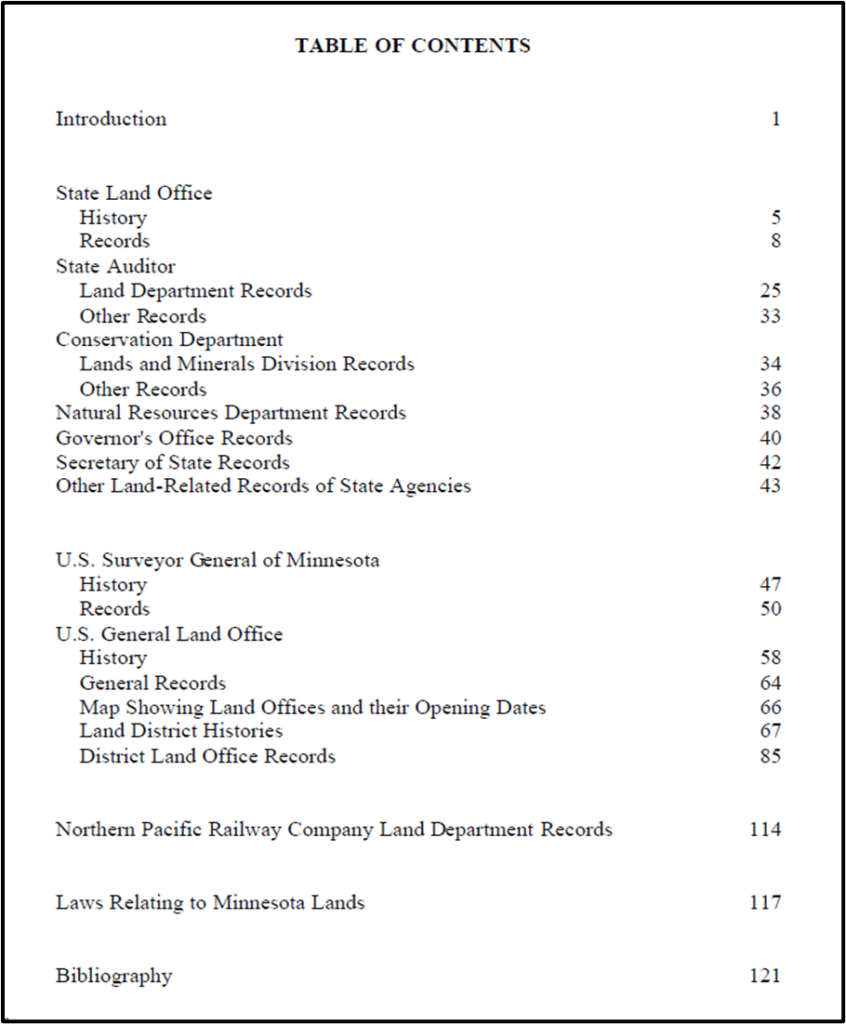Hey genealogy enthusiasts! Join us in June for Digging Deeper: Records, Tools, and Skills
Why join us before the seats are filled? This long-standing course speaks for itself and the evaluations from past students in this “beyond the basics course tell the story.” GRIP Genealogy Institute is the place to register. https://grip.ngsgenealogy.org/courses/digging-deeper-records-tools-and-skills/
- Instructors who bring many years and areas of knowledge and experience.
- Hands-on participation with delving into document analysis, research planning, citing sources, solving long-term research issues.
- Learning more about records, more places to find them, and interpreting what they show.
- It’s not the basic obits, marriages, or censuses, but more of the stories behind them, taking a second or third look at the nuances, and adding more record types to your research plan.
- We may help solve one of your own research struggles. Registrants will receive details on that.
- It’s a fun week, too. Time for interaction with the instructors and other students.
- Join us this June from your own computer!

Don’t forget! https://grip.ngsgenealogy.org/courses/digging-deeper-records-tools-and-skills/




 March/April 2024Check out what’s new and noteworthy this spring in
March/April 2024Check out what’s new and noteworthy this spring in 